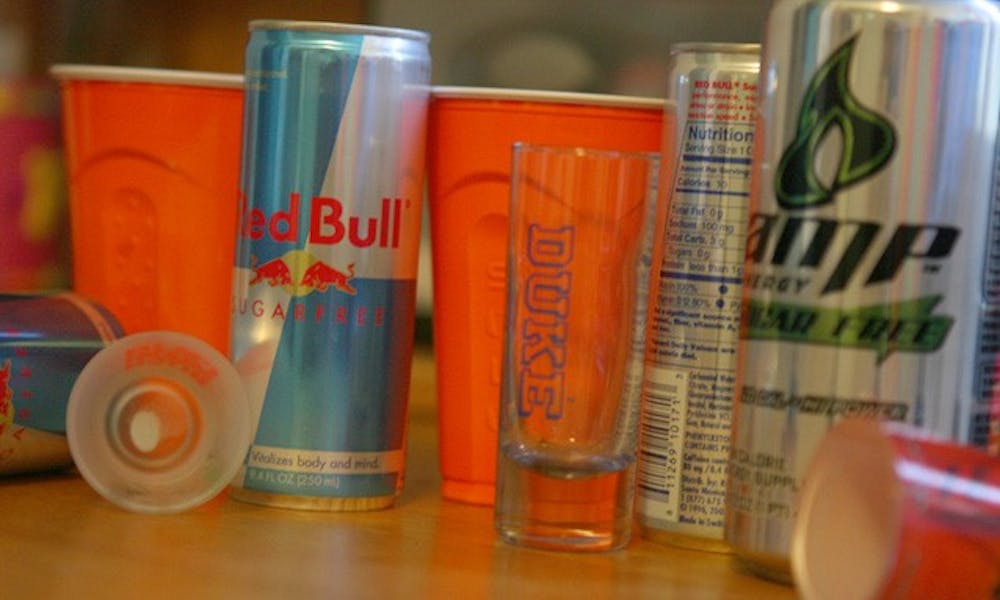Duke students continue to experiment with alcoholic beverages containing caffeine despite the lack of consensus regarding the safety of their consumption.
In addition to mixed-drinks such as Red Bull and vodka, some students consume pre-made alcoholic beverages containing caffeine, which are readily accessible at local gas stations. Four Loko is especially popular on campus, a beverage that combines 12 percent alcohol by volume with caffeine, guarana and taurine—three substances that provide an energy boost.
The Food and Drug Administration is conducting an ongoing investigation of drinks similar to Four Loko. At Duke, some experts note that the combination of an energy drink and alcohol is unhealthy.
“You know what you get when you give a drunk a dose of coffee? A wide awake drunk,” said Scott Swartzwelder, a professor of psychology who studies substance abuse. Consumption of beverages containing both caffeine and alcohol are especially dangerous to the health and academic performance of college students, he added.
“Part of why alcohol is so bad for learning and memory is that it disrupts sleep,” Swartzwelder said. “If you add to that caffeine, not only will you be woken up earlier but you’ll be kept up later.”
A 2007 study by researchers at Wake Forest University found 24 percent of college students who had consumed alcohol in the previous 30 days had mixed alcohol and energy drinks. The study, titled “Caffeinated Cocktails: Get Wired, Get Drunk, Get Injured,” found that students who consumed such drinks were significantly more likely to face negative consequences, such as being taken advantage of sexually or being injured.
Some Duke students speculate that the drinks may have become even more popular since the study.
Sophomore Abby Mathieson attributes the rise in the drinks’ popularity to the heavy academic burden of students at the University.
“I think one of the reasons energy drinks are so popular at Duke is because people are overworked,” Mathieson said. “People need that energy drink with their alcohol because otherwise they’ll fall asleep.”
Swartzwelder said that although students drink the beverages for increased energy, the caffeine only partially counteracts the depressant nature of alcohol. This can create a false sense of security leading students to believe that they can do things they actually cannot, he added.
“It doesn’t reverse the lack of control, the poor judgment—you just don’t feel as sleepy,” he said.
Phusion Projects, LLC, the company that sells Four Loko, encourages safe and responsible drinking on its website. When contacted about the safety of its products, co-founder Chris Hunter, said the company hired an independent panel of food safety experts to examine its beverages.
“The panel unanimously concluded that combining caffeine and alcohol is safe,” Hunter wrote in an e-mail Thursday. “We recently submitted the report to the FDA for its review.”
Agnes Stevens, spokeswoman for the North Carolina Alcoholic Beverage Control Commission, said that although the drinks are currently considered safe, the state will continue to monitor the issue.
“The Commission is certainly aware of the national debate and the questions being raised by the FDA,” Stevens wrote in an email Oct. 4.
Swartzwelder, who acknowledged that there have been no authoritative studies on the subject of alcohol-containing energy drinks, said he strongly discourages its consumption based on his knowledge of pharmacological science.
“It’s a losing cycle no matter how you cut it,” he said.
Get The Chronicle straight to your inbox
Signup for our weekly newsletter. Cancel at any time.

